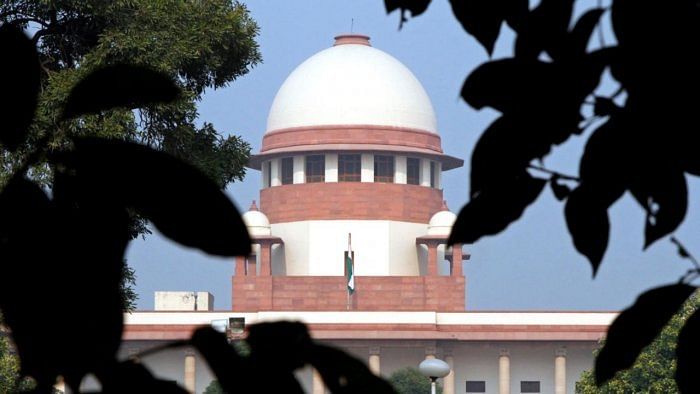
Supreme Court of India
Credit: PTI Photo
The Supreme Court on Friday sought a response from state governments regarding the appointment of district-wise nodal officers to deal with hate speech cases.
The top court emphasised that Director General of Police in consultation with the DCP should form a committee of three or four officers to scrutinise hate speech cases, and ensure installation of CCTV cameras, etc.
A bench of Justices Sanjiv Khanna and S V N Bhatti said wherever more than four to five cases of hate speech are raised, DCP can inform the nodal officer and the committee formed could ensure there is no hate speech.
The court said that nodal officers, nominated district-wise, can point out if some statement is not correct and the authorities can upload counter video. The bench said if they think something is not correct, then they must say "we do not agree with it".
The bench sought to know from Additional Solicitor General K M Nataraj the status on the appointment of district-wise nodal officers, as per 2018 Tehseen Poonawala judgement.
"Wherever they have not been appointed please appoint them immediately… It should be state-wise because police are a state subject. All the states will file their affidavits regarding nodal officers,” the bench said.
Hearing a batch of petitions related to hate speech, including one against boycott of a community after Nuh violence, the bench asked Nataraj to ensure that an exercise is undertaken to check where nodal officers have not been appointed.
As the court was informed that states have filed affidavits regarding the appointment of the nodal officers, the bench asked Nataraj to scrutinise it.
The bench also emphasised on the need for installation of CCTV cameras.
During the hearing, the bench once again said, “The difficulty is how to define hate speech, it is not easy whether it crosses that line. Therefore, the committee being formed probably can understand."
The bench also stressed on sensitisation of the officers, saying the police academies would have to consider this in a big way.
The bench asked Nataraj to take information from states with regard to appointment of nodal officers and filed a status report within three weeks.
